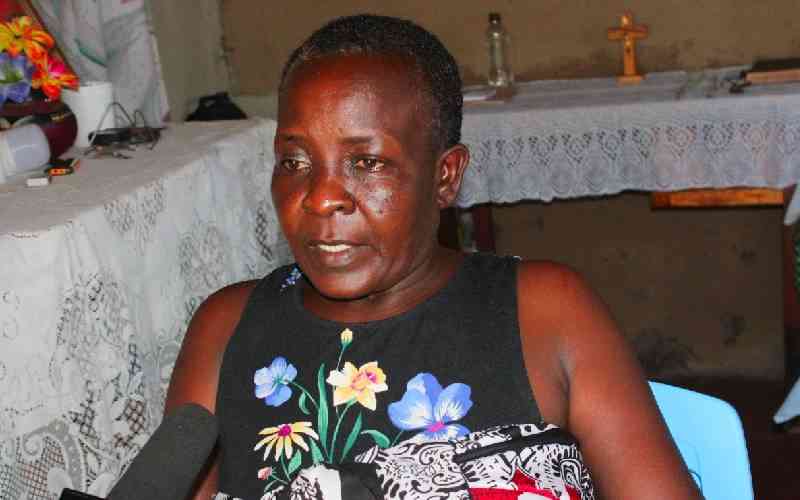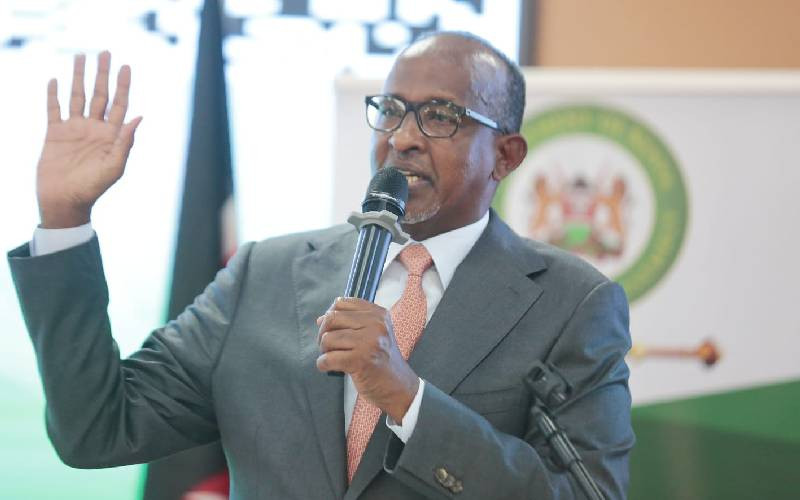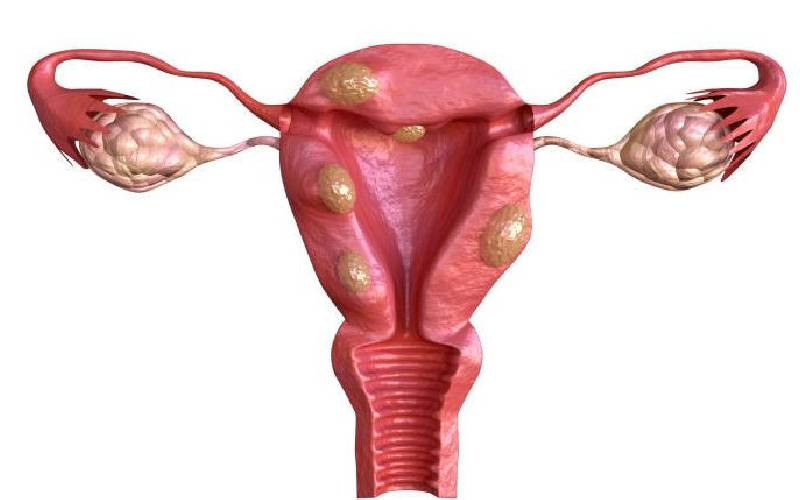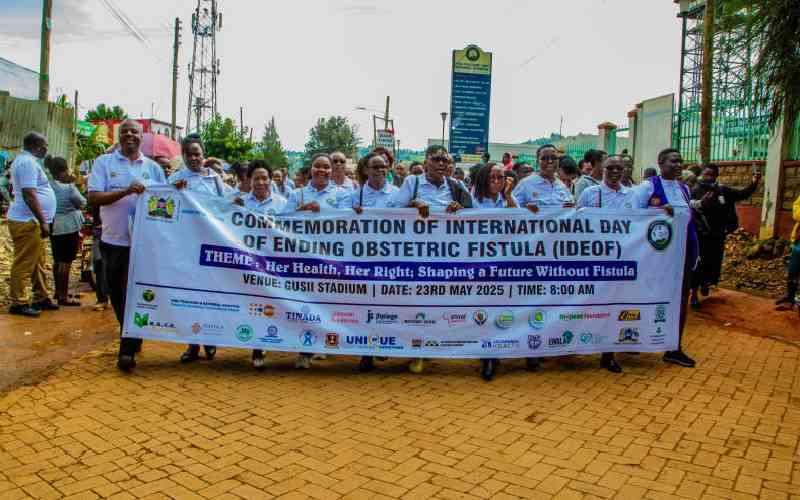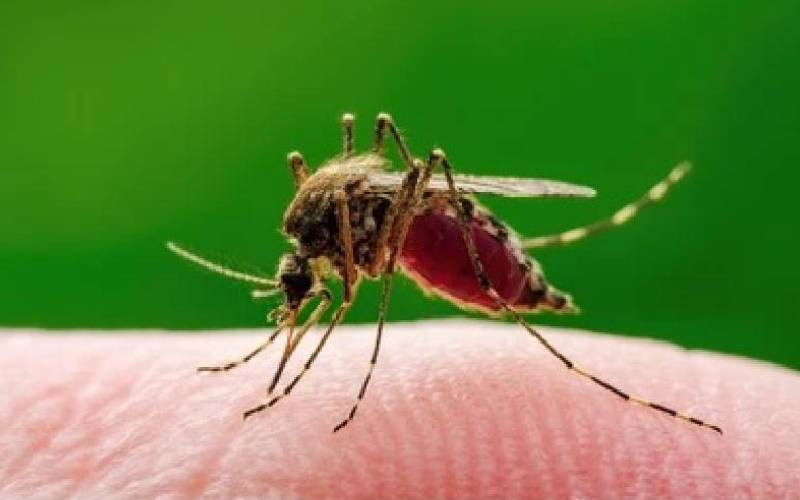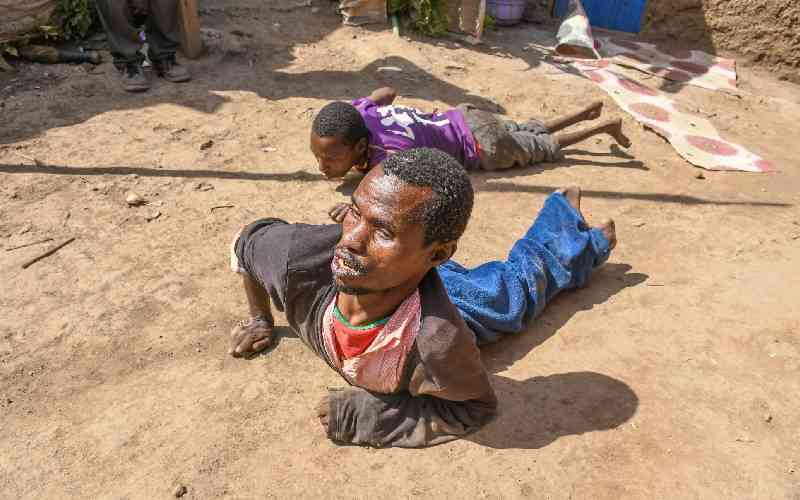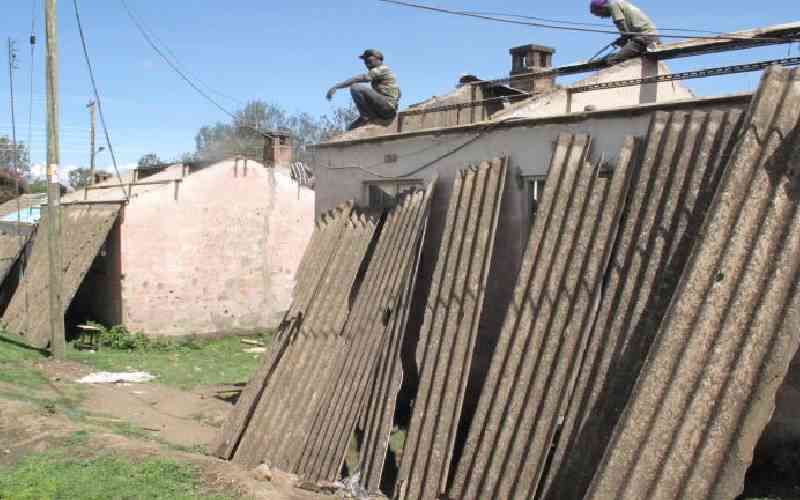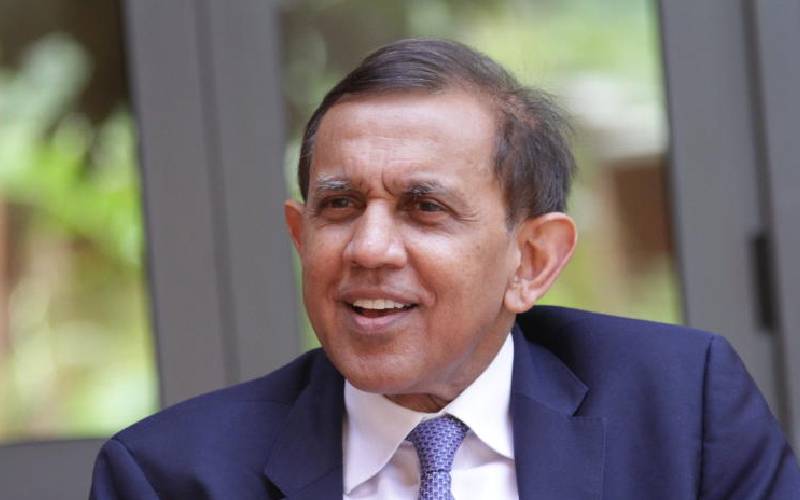
Prof Mansoor Saleh lived with his grandparents in Zanzibar, until the Sultan was overthrown by African revolutionaries in 1964.
As happens in war, the collateral damage of the Zanzibar revolution were the weak in society. A young Mansoor was among the many children captured by revolting soldiers and put in a prison camp away from his grandparents and the life he was accustomed to.
Typically, this cruel shift would have broken the strongest of spirits, but for Prof Mansoor, the experience informed his empathetic approach towards humanity, propelling his desire to alleviate pain and suffering.
“Today, when I hear about war, refugees and children being displaced, I know what it feels like,” he says.
“A child depends on its parents for support, and when suddenly they have no one, in a strange environment, it makes them very vulnerable,” he adds.
Prof Mansoor was rescued by members of the Ismaili community after five days in the camp. He was reunited with his parents in Dar-es-Salaam, mainland Tanzania.
He went through high school in Southern Tanzania before moving to Nairobi for his ‘A’ levels at the Agha Khan Academy.
Despite the despair of war the revolution posed, Prof Mansoor experienced the goodness of people too. His father dealt with Makonde artwork, which exposed him to tourists. Among them was a German author with whom he had done a lot of business. They had also spent time together studying Makonde culture.
The German offered to take Prof Mansoor to Germany for his university education. Prof Mansoor’s father obliged.
That was how Prof Mansoor enrolled in a medical school at the university in Heidelberg, Germany, and later conducted his doctoral research at the Max Planck Institute for Medical Research while living with his sponsor for eight years.
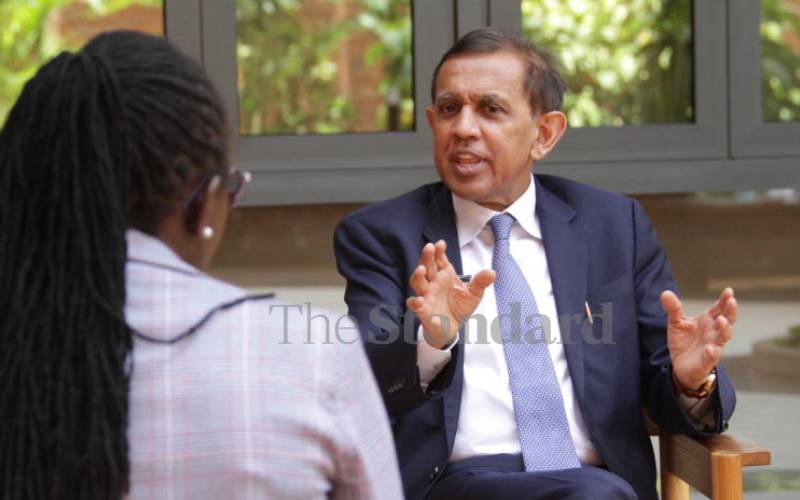
“While at the Max Planck Institute for Medical Research, I came across several famous names, like the Nobel Medicine Prize winner Heinz Kohler, who developed proteins that could target specific cells,” he recalls.
“The molecule, known as the magic bullet, can target a particular cell and spare all the surrounding ones. I thought it fantastic that you could develop a molecule that can kill cancer cells and spare normal tissue,” says Prof Mansoor. “That was always at the back of my mind, but I didn’t think much about it,” he says.
This later proved to be his turning point.
During this period, Prof Mansoor’s parents immigrated to Canada. It is there that Prof Mansoor met the woman who would become his wife later in life. She, too, was born in Mwanza, Tanzania. She was visiting Mansoor’s brother, then her friend. But it was Prof Mansoor who ended up marrying her.
With the money his German benefactor had saved for him, Prof Mansoor moved to Detroit, North America, to be close to his parents.
There he met a professor at the University of Michigan, who had visited Detroit for a talk on the concept of targeted therapy for cancer.
His interest in the area was rekindled by the lecture, which he says “was like an awakening, predisposed by what I learned in Germany from the Nobel Prize winners. I knew then that’s the research I wanted to do. I decided that was a vocation worth pursuing.”
And so when he earned a fellowship, it was with a natural transition that he had to follow his mentor to Michigan.
But shortly, the mentor moved to head the Alabama Cancer Centre. Not wanting to let the chance slip away, Prof Mansoor also moved to Alabama, where he concentrated on his key research interest in targeted therapy of cancer.
For 20 years, Prof Mansoor developed his research in Alabama alongside his mentor, but not before desires of returning home came calling.
“The reason I came back to Africa was because research is done in America and other places. The drugs used by our patients are developed there and have never been studied in our patients,” he says.
“We do not know whether they will work for us. And I think we should do that work here. That’s what brought me here.”
The decision was cemented by Agha Khan University Hospital’s acceptance of his proposal to set up a cancer centre and a clinical research unit there. He, in turn, would give up what he was doing in America to focus on the cancer centre.
In the end, he became the Founding Chair, Department of Haematology and Oncology and Founding Director of the Cancer Centre at the Aga Khan University Hospital.
Though busy, Prof Mansoor finds time for family now based in Atlanta.
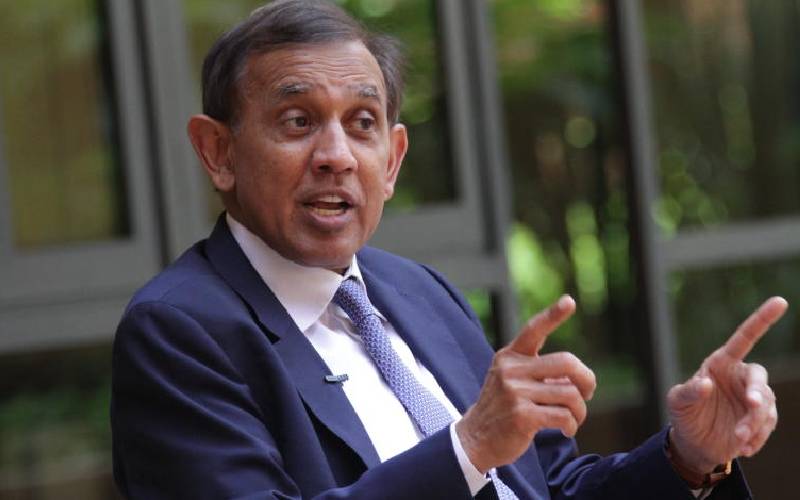
Mansoor’s daughter, 31, is a paediatric oncology nurse, while his son is a computer programmer in Atlanta. He only hopes they will one day join him to work in their respective capacities at the Agha Khan University Hospital. For now, however, they visit one another whenever they can.
“I need to make a difference by giving back the knowledge that I learnt courtesy of the kind German author. My family has contributed by allowing me the freedom to do so,” he says.
“We did Covid research and proved ourselves, trained our team, and today we are ready to do cancer research. We are about to start a series of studies specifically dedicated to cancer research in patients with the main types of cancers we see here. They are breast cancer, colon cancer, oesophageal cancer, and prostate cancer. We are developing a number of drugs that I believe will make a difference to patients in Africa,” he says.
Prof Mansoor says even though infectious disease research and drugs, including new vaccines for malaria, have been developed in Africa, somehow the same has not been the case with cancer research, which “is still uncharted”.
There is need to educate not only our clinicians and patients, but also our regulatory systems to say “we can do cancer research.”
For patients, Prof Mansoor admits, research is a novelty in many ways.
However, he urges patients to be open to drug trials because every drug administered today was once a research drug for which “someone said yes.”
In his quest to share knowledge; Prof Mansoor looks forward to establishing a cancer research programme, a clinical research unit, and a cellular therapy unit.
“This will mean that Kenyans and East Africans can use the same research I do to treat cancer patients. I believe that we know what ails our patients, and we can become the source of knowledge,” says Prof Mansoor.
The long winding path to becoming Prof Mansoor Saleh from little Mansoor; and the remaining part of the journey towards nipping cancer in the bud, is what he considers his contribution and justification for his existence.
 The Standard Group Plc is a multi-media organization with investments in media
platforms spanning newspaper print
operations, television, radio broadcasting, digital and online services. The
Standard Group is recognized as a
leading multi-media house in Kenya with a key influence in matters of national
and international interest.
The Standard Group Plc is a multi-media organization with investments in media
platforms spanning newspaper print
operations, television, radio broadcasting, digital and online services. The
Standard Group is recognized as a
leading multi-media house in Kenya with a key influence in matters of national
and international interest.

